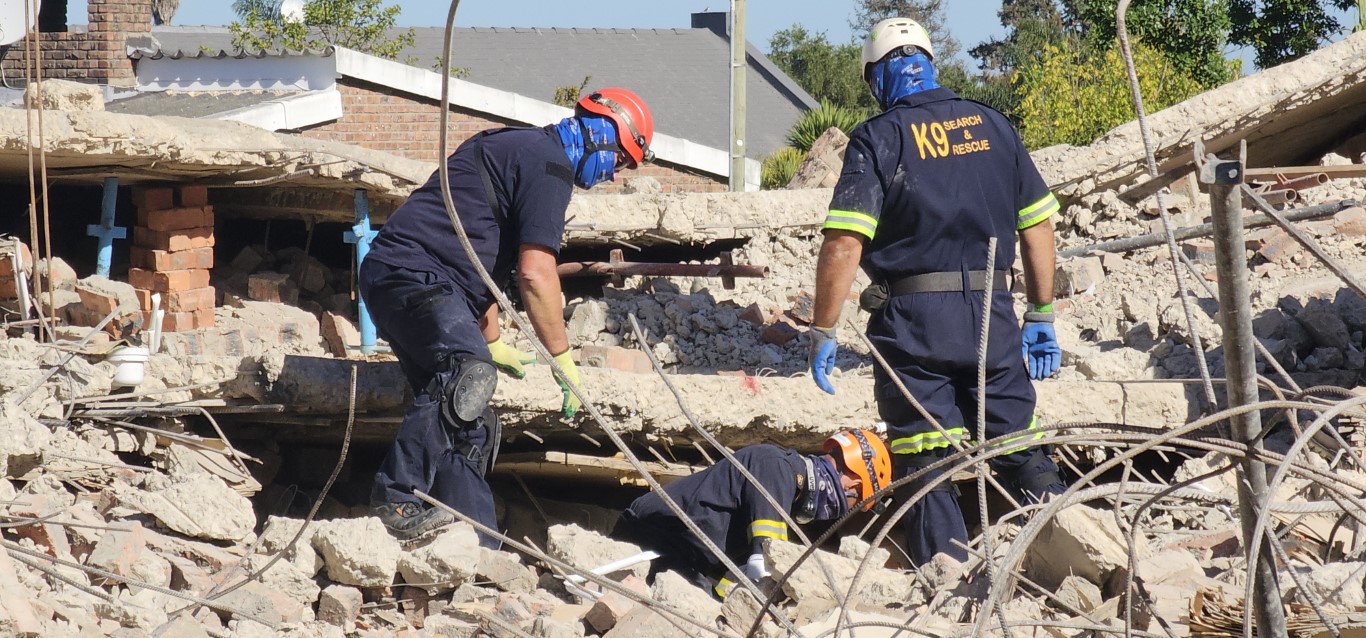GEORGE NEWS - In light of the liquidation of the developer of the collapsed building at 75 Victoria Street, Neo Victoria Developments, what are the options for injured survivors, should they want to claim for compensation for pain and suffering, and loss of quality of life?
The Labour Department compensates only for medical expenses and loss of income in terms of the Compensation for Occupational Injuries and Diseases Act (Coida).
According to Great Brak-based attorney Ina Bezuidenhout, the employees will as a rule not have a damages claim against a developer, except if special reasons exist, such as that the developer was actively involved in the construction activities or was negligent by creating a dangerous work environment.
In terms of the common law, there can, however, be claims against the contractors, and Contractor A's employees can claim against Contractor B if they can prove that Contractor B was negligent.
Bezuidenhout says in the case of the building collapse, the claims are of "academic importance" because all the contractors were small businesses, or so-called bakkie contractors and the owners not financially strong.
"The authorities will probably look at the main contractor and if it can be proven that the directors are guilty of wrongdoing or were negligent, they have failed in their fiduciary duties to the company and can be held liable in their personal capacity."
'Limiting liability'
Public interest and human rights attorney George Kahn, who is assisting some of the victims and families, told George Herald that it often happens that a parent company will voluntarily close down the responsible subsidiary company to avoid or limit liability.
In such a case, it must either be demonstrated that the subsidiary company was nothing more than an "absolute puppet" (with no real personality of its own) of the parent company / shareholder; or, the law can hold the parent company liable if it did nothing when witnessing its subsidiary doing the wrong thing in its area of professed expertise - where the parent company publicly professes to hold the particular expertise that is being used by its subsidiary.
He says if the company goes insolvent, the victims would need to deal with the trustee responsible for the insolvency, which introduces further requirements for successfully suing the company.
"It is possible, though very difficult, to re-active a company that was closed down previously so that it can answer for its liabilities when it was still around - but these zombie companies seldom have much in the sense of assets that can be attached to settle those additional debts."
These two avenues above are relevant if the only third party responsible for the disaster is the company contemplating insolvency or shutting down.
"If it comes about that multiple defendants are responsible, then the other defendants may have to pick up the slack. Ordinarily we pray that a court grants the liability of defendants 'jointly and severally'. This means that we can execute the order / judgment against any one of the defendants, and it would then need to reclaim the other defendants' share of that total liability from the other defendants - if it can," says Kahn.
The director would enjoy corporate immunity so long as he / she was operating only within the scope of their role as the company's director, and not for their personal enrichment.
"I would be somewhat stunned if only one person was responsible for the accident in George. An accident of that kind of scale usually means several things went wrong altogether. But it is possible that only the employer could be held responsible."
Insurance
Khan says if the liable companies took out private insurance (additional to Coida) to cover their potential liability, that insurance would be still restricted to the lawful liability of the insured - meaning if the insured cannot be sued for the harm to its employee, then the insurance company cannot be held liable for it either.
Sarvin Oroogi, a local volunteer who has been assisting survivors, said some of the deceased workers were registered with the Federated Employers Mutual Assurance (FEMA) and their families are in a process of application for compensation there.
George Municipal Manager Godfrey Louw during a recent feedback session before the Western Cape Standing Committee on Infrastructure said in light of the developer's liquidation, he foresaw "a tedious process" in trying to recoup R9m spent on rescue efforts during the disaster.
Investors who had bought flats in the building will not be affected by the liquidation. Their deposits had been refunded in August last year.
 Members of the K9 dog unit during rescue operations.
Members of the K9 dog unit during rescue operations.
‘We bring you the latest Garden Route, Hessequa, Karoo news’
















